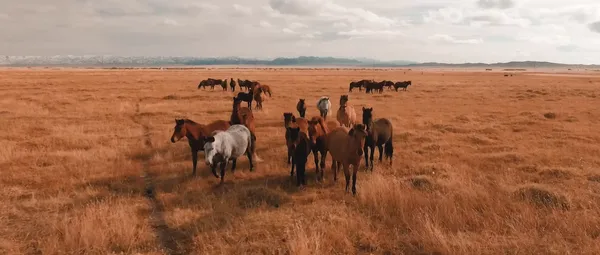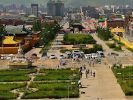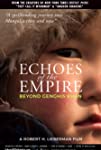Eye For Film >> Movies >> Echoes Of The Empire: Beyond Genghis Khan (2021) Film Review
Echoes Of The Empire: Beyond Genghis Khan
Reviewed by: Jennie Kermode

They call it the land of the eternal blue sky, that vast country on the Gobi-Manchurian steppe, with a tiny population but, historically, a big reputation. Aside from its famous conqueror and a handful of his descendants, however, it is largely unknown in the outside world. Robert H Lieberman’s documentary sets out to change that, not simply by presenting viewers with information, but by capturing something of the spirit of the place.
It begins by exploring the country’s diverse landscapes, going beyond the grasslands into the mountains and the wooded areas of the north; by picking out the details which make these landscapes immediately distinctive to those who inhabit them, even in the absence of buildings, which most of us use as landmarks. We also enter the urban landscape of Ulan Bator, the country’s capital, where grandiose Soviet constructions sit side by side with buildings of the sort one might see in any modern city, surrounded by a sea of gurs – nomads who cannot afford apartments having pitched their tents on tiny patches of rented land, without electricity or water or proper sanitation. In winter, we are told, the pollutions in unbearable, as everybody burns brown coal in order to survive.

Here, in the city, young women study advanced degrees. Steppe families whose livelihood depends on tending livestock cannot spare the boys. The result is that this one of few countries in the world where women are better educated than men, which has created something of a crisis when it comes to traditional family relationships, as they struggle to find partners who can maintain their interest. meanwhile, on the steppe, climate change is making life harder than ever, and people are looking for new ways to live.
The herders’ way of life is an ancient one. Lieberman’s film looks back at history as it is remembered, passed down through oral storytelling, and reflects on how the Soviets, after Mongolia turned to them out of a need for aid and a desire for modernisation, sought to eliminate that different consciousness. It reflects on attempts to suppress the very name of Genghis Khan, and how, as a consequence, he came to be seen as a hero when the era came to an end and the country began to reassert its identity. Soviet artistic styles designed to lionise great leaders have been easily repurposed to this end.
Another legacy of the Soviet era is Mongolia’s world class opera. Lieberman relates it to the traditional use of music as a means of describing landscape by giving vocal expression to its undulations, rivers and patterns of wind, explaining that song has always played a vital role in this culture. We are treated to fragments of performance by some of the country’s greatest singers.
If there is a major element missing here, it is youth culture. Granted, much of it is imported, but it still has something to say about the direction in which Mongolia is now headed. We see children hanging around together in the slums, but teenagers are almost absent. There’s also no coverage of traditioonal sport, though it’s a big part of social life when people come together of the steppe. What we do see, however, is a rich portrait of a rapidly changing nation whose people are facing up to the challenges of the 21st Century with the same determination they have always shown. That famous Y chromosome variant gets a mention – around a third of Mongolian men claim descent from Genghis Khan or someone in his immediate family. They still style themselves as warriors, and perhaps it’s for this reason that depite its period of incorporation in an outsider’s empire, Mongolia has never truly been conquered.
Reviewed on: 03 Jun 2022


















